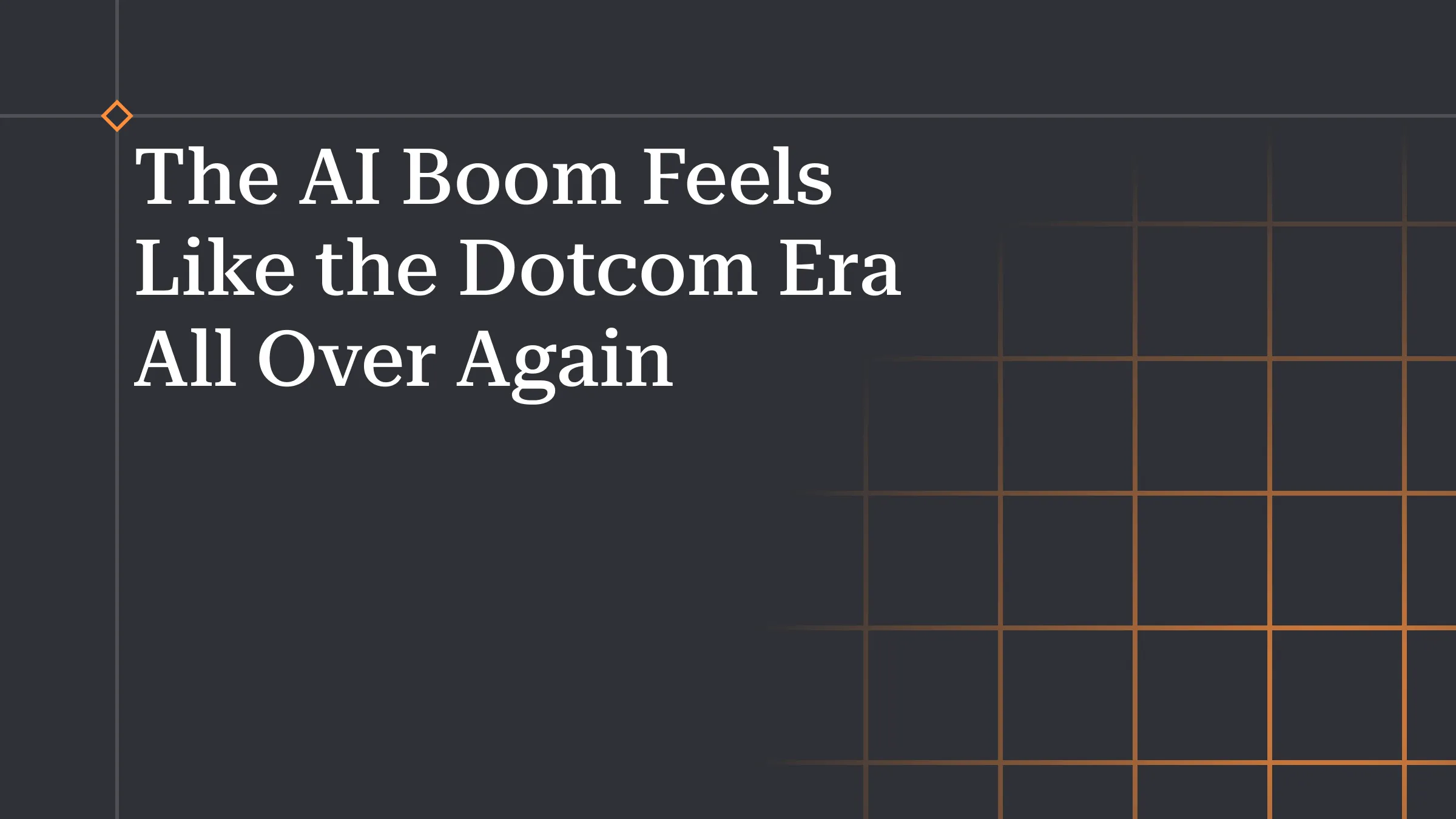
The AI Boom Feels Like the Dotcom Era All Over Again
If you’ve been around long enough, like me, this all feels familiar.
Suddenly everyone’s talking about a new way of building. People are shipping chaotic demos. Startups are launching with nothing more than a clever wrapper. VCs are tweeting in all caps. And engineers everywhere are quietly muttering, “Wait, we’ve been here before.” Because we have. We saw it with the web. We saw it with mobile. And now we’re seeing it with AI.
However a real difference is that for this to succeed (sorry c-suite execs who want to get rid of engineering), the people staying in the room need to be the ones who know how to build. Each wave of technology has brought new challenges — and new opportunities:
- Web 1.0 taught us to move fast and embrace iteration.
- Mobile forced us to rethink UX, connectivity, and scale.
- AI is asking us to design for ambiguity. For systems that plan, respond, and sometimes do things we didn’t expect.
It’s exciting. But it’s also chaotic. And that’s okay. Honestly it’s fun! These big shifts don’t come around all that often and the potential right now feels huge.
No, you’re not getting replaced
Let’s be clear: AI-assisted coding is real. And useful. And powerful. If you know what you are doing. It’s not replacing engineers because, quite honestly, it gets a lot wrong still. But it is giving you leverage.
The more you understand architecture, systems, tradeoffs, and production constraints, the more valuable you are in this era. Because someone still has to:
- Know when to retry
- Handle conflicting state
- Debug non-deterministic outcomes
- Make tradeoffs visible and fixable
And maybe more importantly: someone still has to care about the problem, not just the code.
I’ve always been in this to solve problems and build solutions and not to polish algorithms for their own sake. And this moment is separating people like that from those who just love writing code. Both have a place. But AI is changing the balance.
As @mronge put it:
I’m noticing a trend with AI software development:
- Engineers that love writing code → Don’t like AI
- Engineers that love BUILDING → Like AI
Are you in it to build something new or for the process of writing code?
And that’s not a loss. That’s an invitation to focus more energy on design, on architecture, on outcomes. The skills that scale.
The chaos is the signal
Things feel weird right now because there is no playbook. Everyone’s experimenting. Every team is trying to figure out how agents should behave, what tools to use, and how to stay sane while doing it. That’s a good thing.
This is how new patterns emerge. Not by consensus, but by trial and error. By engineers prototyping things that mostly work and improving them until they actually do. And in that environment, the best thing you can do is keep building.
The real opportunity: engineering with leverage
What AI gives us is new building blocks:
- Reasoning
- Summarisation
- Planning and decision-making
But those blocks don’t connect themselves. And they definitely don’t retry on failure, queue events, or emit traces when things go sideways. That’s still your job.
And it’s a good one. Because it means engineers are now working with even higher-level primitives. You’re not just writing routes and handlers anymore. You’re wiring up intelligence. You’re giving software the ability to react. But only if you have the right control plane.
Where Sailhouse comes in
We built Sailhouse because AI-native systems are fundamentally more dynamic, more chaotic, and more brittle than anything we’ve dealt with before. You need a control plane that can:
- Handle events gracefully
- Retry on failure — not crash on it
- Trace behaviour across components, agents, and human input
- Keep working when your agent doesn’t respond quite the way you expect
That’s what we do. We give developers a foundation that scales with them from prototype to production, agent to API, messy to mature.
Keep building — it’s your superpower
This is one of those moments where everything changes. Not because of a single model. Not because of a new framework. But because developers are learning to build with AI. Yet still (or should!) care about reliability, observability, and scale.
If that’s you, we’re building with you in mind. Let’s make this era count. Together.